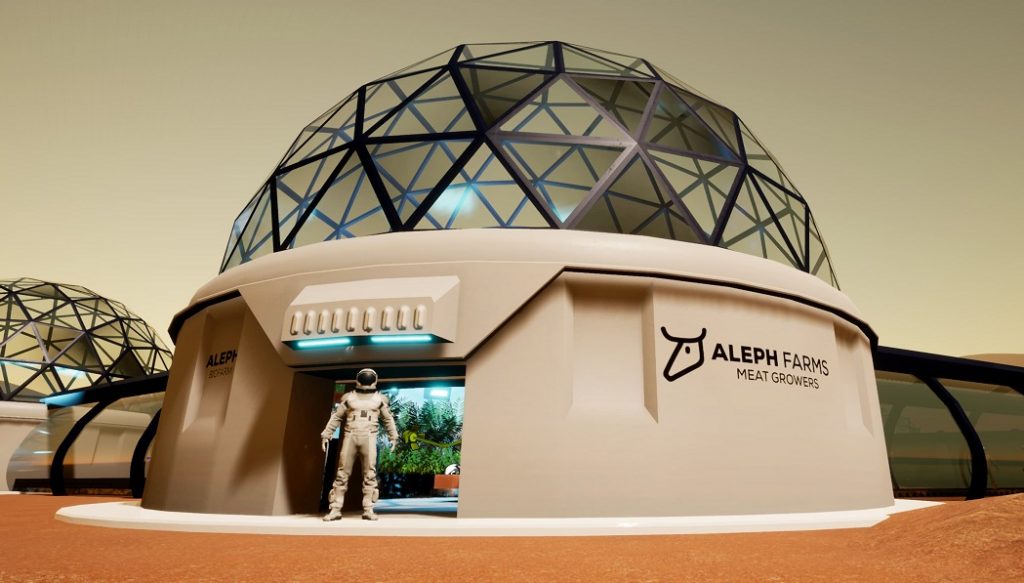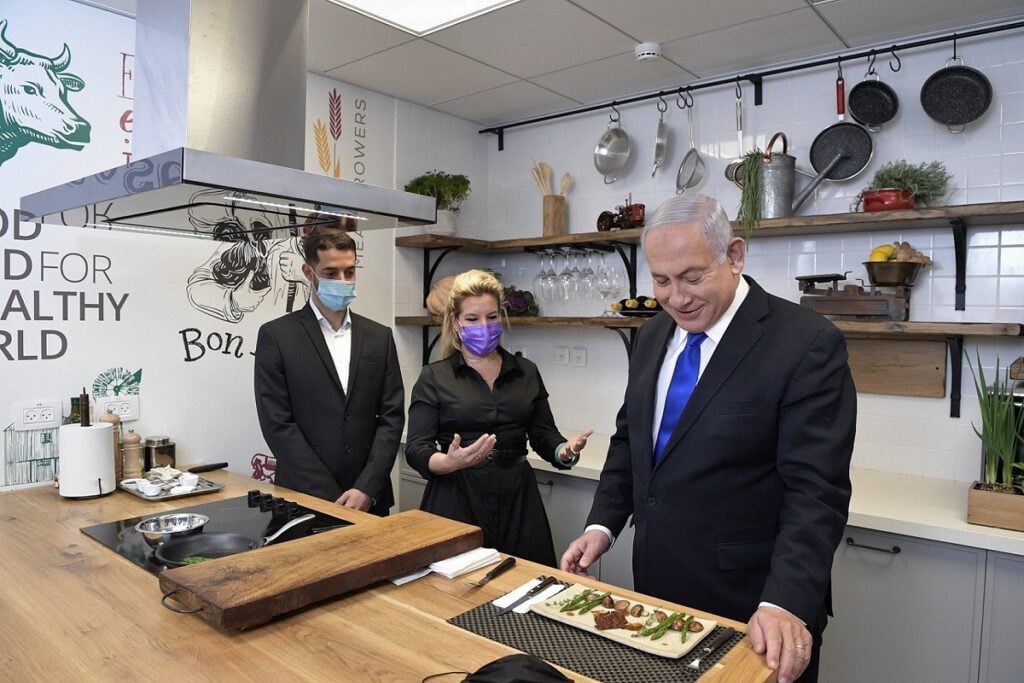Israeli clean meat startup Aleph Farms, the company that announced an ambitious plan last year to take its lab-grown meat production to outer space, is set to combat food challenges back on Earth in the world’s third largest economy.
The Rehovot-based company, which created the world’s first slaughter-free steak made from cow cells in 2018, announced a new agreement this week with Japanese multinational Mitsubishi Corporation’s Food Industry Group to bring cultivated meat to Japan.
Aleph Farms will provide its manufacturing platform, BioFarm, for the cultivation of cultured steaks, according to CEO Didier Toubia, while Mitsubishi Corporation will provide its expertise in biotechnology processes, branded food manufacturing, and local distribution in Japan.
Toubia called the partnership an “important milestone” for the Israeli cultured meat startup and said the cooperation “demonstrates Aleph Farms’ strategy of working together with the food and meat industries to ensure a successful integration of cultivated meat within the ecosystem while maximizing the positive impact we make.”
“Aleph Farms will work on tailoring its products to the tastes and nuances of Japanese consumers and regulatory bodies,” Toubia tells NoCamels.
“We are excited to bring cultivated meat production closer to the Japanese market,” he adds.
Mitsubishi Corporation’s global network of enterprises is comprised of ten business groups in that span many industries. The Food Industry Group covers food resources, fresh foods, consumer products, and food ingredients, and is active in every link of the food supply chain, from the production and sourcing of raw materials to the manufacturing of finished food products.
Aleph Farms and Mitsubishi Corp are both members of the Cellular Agriculture Study Group, a consortium implementing policy proposals under the Tokyo-based Japanese Center for Rule-Making Strategy. The consortium brings together a range of experts on the definition and construction of cellular agricultural foods and offers policy recommendations for Japanese products and technologies.
Food security
The impact of the COVID-19 crisis and the threat of climate change has demonstrated the need for sustainable food security, a mission that Aleph Farms has strived to tackle by producing meat regardless of the availability of land and local water resources, the company says.
The cooperation with Mitsubishi Corporation takes a lead role in the fight against climate change, Aleph Farms said in a statement.
The Japanese government has stipulated the goal of achieving zero greenhouse gas emissions by 2050. In April, Aleph Farms committed to eliminating emissions associated with its meat production by 2025 and reach the same net-zero emissions across its entire supply chain by 2030.
As the demand for meat continues to rise, the cooperation will provide solutions that work with the food and meat industries to implement new strategies to provide quality nutrition and other benefits.
The collaboration with Japan is part of a network of “BioFarm to Fork” strategic partnerships being developed by Aleph Farms in the Asia-Pacific region, Latin America, and Europe, Toubia says. It follows the USD 12 million Series A funding closed by the company in May 2019, with investments from US food giant Cargill and the Migros Group in Switzerland.

In October, the company announced a new program called Aleph Zero to advance food security by producing fresh quality meat independent of climate change and natural resources, and to introduce new capabilities for producing food even in the harshest, most remote environments like space.
The startup said at the time that it was also working to secure strategic partnerships with technology companies and space agencies for long-term collaborative research and development contracts “that will ensure the integration of Aleph Farms’ innovations into leading space programs.”
Aleph Farms was co-founded in 2017 with The Kitchen Hub of the Strauss Group and with Shulamit Levenberg, dean of the Biomedical Engineering faculty of the Technion – Israel Institute of Technology.
Demand for meat substitutes
The global demand for meat alternatives is on the rise due to health and environmental concerns. In Japan, meat substitutes have begun to attract more local attention, specifically during the pandemic, according to an August report in The Japan Times.
Last month, Singapore became the world’s first country to receive regulatory approval for the sale of clean and cultivated meat. In the US, companies like Beyond Meat and Impossible Foods are as popular as ever and US multinational food corporations like Tyson and Perdue have begun to roll out their own meat alternatives.
In Israel, where 85% of locally consumed beef is imported, another Rehovot-based company called Redefine Meat unveiled what it claimed was the world’s first plant-based steak created using patent-pending 3D printing technology in July.
A month later, Israeli cultured meat bioprinting startup MeaTech announced that its scientists have successfully completed the 3D print of a slaughter-free meat tissue produced from stem cells.
And SavorEat, an Israeli firm that combines 3D printing tech from a smart robot with a plant-based formula and advanced cooking methods to create meat substitutes, became the first food tech company to hold an IPO on the Tel Aviv Stock Exchange.
Meanwhile, Israeli Prime Minister Benjamin Netanyahu visited an Aleph Farms factory last month to taste their cultivated steak.
“It’s delicious and guilt-free, I can’t taste the difference,” Netanyahu said at the time. “I have directed the Cabinet Secretary Tzahi Braverman to appoint a body to serve these industries in order to connect and oversee all the stakeholders operating in this field. Israel will become a powerhouse for alternative meat and alternative protein.”

This article first appeared in NoCamels, which covers innovations from Israel for a global audience.

